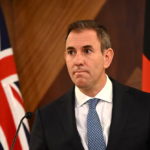Engaging with Economics
Econommists are coming to agreement about the need for change but the message is not filtering through.
Over the last couple of months, shortly before and shortly after the Federal election, I attended two economists’ conferences – the Australian Economic Forum and the National Economic Review hosted by Global Access Partners.
At both conferences there was general consensus among business, academic and public sector economists on economic issues – the need for a price on carbon, the need for a means to reduce economic instability resulting from commodity dependence, the need to modernize public infrastructure (surface transport and broadband), and, generally, the need to develop an industry structure that will be competitive when, in time, we must make our way in a world market on the basis of our skills and innovative capacity rather than as China’s quarry.
Of course there is disagreement on means; economists wouldn’t be true to their profession if they reached easy agreement. Some argue for a cap-and-trade regime while others argue for a carbon tax. Some support a resource rent tax as a means of smoothing the mining boom, while others propose different mechanisms.
In the wider community, however, there is little engagement with these issues.
In the election the two major parties, guided by focus groups and opinion polls, carefully avoided bringing economic policy to prominence. Both parties, in their own ways, ducked the issue of a price on carbon. The Government proposed a form of resource rent tax, but it failed to explain its purpose. Nor did the Government explain its approach to the global financial crisis; rather it allowed its critics to focus on the waste of counter-cyclical spending rather than the far greater waste of unemployment.
One of its election commitments was to ease the financial burden on young people remaining in education, but this came across as a social welfare initiative rather than an economic one. And neither party dared suggest that we may need to make some small sacrifices now in order to ensure our future prosperity.
Instead, economic policy was reduced to the issue of fiscal book-keeping, rather than a debate about industry structure. At one stage the Government’s focus was on a misplaced decimal point in the Opposition’s budgetary costings!
Australia has a sound record on economic reform. The 1980s saw the Hawke and Keating Governments reduce tariffs, introduce strong competition policy and largely de-regulate financial and labour markets. The Howard Government overhauled indirect taxes and made the Reserve Bank much more independent. All these moves were politically risky, and in cases faced strident opposition, but, ex post, they did not cost the governments political support.
In the aftermath of the election it is clear that the Government must engage with the community on economic issues; indeed the composition of the Parliament makes this an imperative. Economists, too, need to reach out to a wider audience.
It is difficult to explain to people enjoying low-priced imports and cheap overseas travel that a high dollar has its costs. It is hard to sell a carbon price to people who have seen their electricity prices rise by 18 percent over the last year. Convincing people that governments may have to raise taxes and user charges, or cut welfare entitlements, to pay for investment in physical and human capital is difficult.
These are all serious challenges for economists.
Ian McAuley is an Adjunct Lecturer in Public Finance, University of Canberra. One of his main concerns is to improve understanding of economic issues among welfare and consumer groups. For more information please visit his website.
Ian McAuley is a retired lecturer in public sector finance at the University of Canberra and a fellow of the Centre for Policy Development. He has been involved in many aspects of the work of Global Access Partners and its ‘Second Track’ Process.












